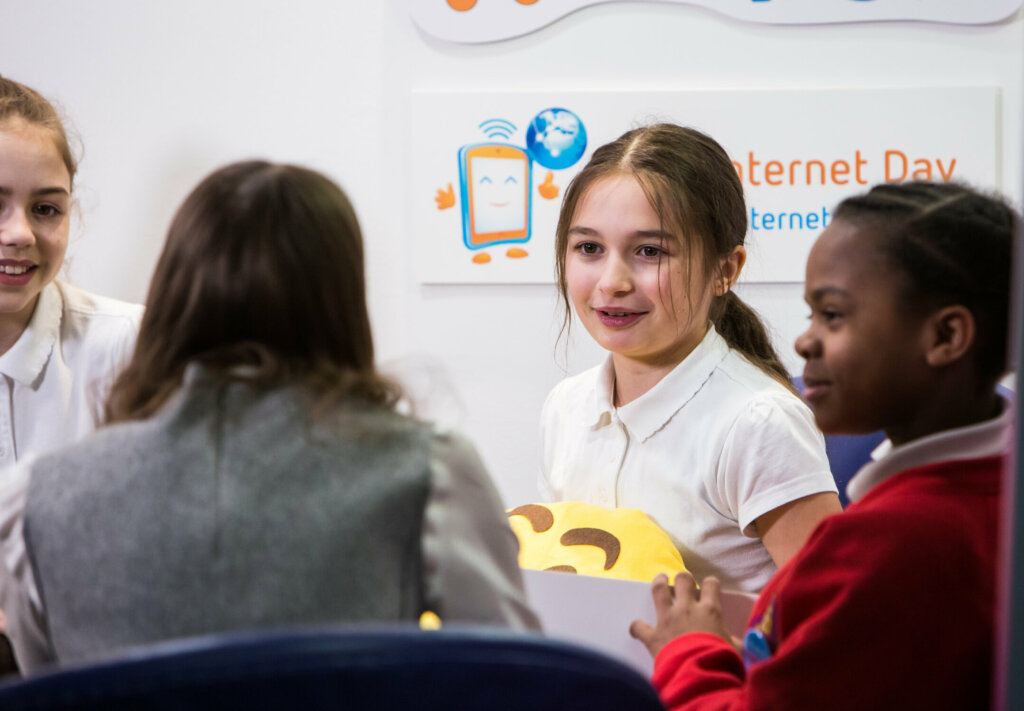Last academic year, from September 2014 – July 2015, our education team visited 176 primary and secondary schools and spoke to 29,000 children and young people.
By speaking directly to young people we can give them practical advice about how to stay safe online whilst hearing from them about the online issues they are facing.Through evaluation of our sessions we see how educating young people about internet safety has helped them feel more confident about how to stay safe online. It has also helped shape our education sessions for this academic year.
An evaluation of approximately 200 secondary school students and 350 primary school students found that 84% of primary school children felt more confident about how to stay safe online and 70% of secondary school students said they would be more careful about what they share on the internet as a result of the session.
84% of primary school children felt more confident about how to stay safe online
At key stage 2 we build the foundations for safe and positive internet use by teaching primary aged children the SMART rules.
These 5 top tips to stay safe online are simple and memorable. As one girl said “I liked that the session was not boring at all and really made sense to me”.
An essential part of building confident digital citizens is making sure children know who they can turn to if they are worried or upset by something online. The SMART rules teach young people to always tell a parent, carer or trusted adult if someone, or something makes them feel uncomfortable or worried online.
Encouragingly 85% of primary school students said they felt more confident about knowing who to report problems to as a result of the session.
70% of secondary school students said they would be more careful about what they share on the internet as a result of the session
At key stage 3 our presentations focus on managing your digital footprint and at key stage 4 young people are encouraged to think about their online reputation.
These topics can spark many questions and so, at Childnet, we always leave room for discussion. As one student said “I liked that we discussed topics and circumstances in depth and any questions or queries that the audience had”.
Friends also play a prominent role and our presentations helped young people know how to help their friends online as well as who to go to for help if they did encounter a problem on the internet.
83% of primary school pupils said that they enjoyed the session
It is great to hear that young people enjoy our sessions but we know we need to continue to keep them fresh and current. That’s why for September 2015 we have revamped our presentations.
We have made them more interactive.
“The lady was very interactive with the pupils and she made everything really interesting with video clips and the powerpoint and activities with others” (15 year old girl).
We had also added in more group work with scenario based questions so everyone feels involved.
“I liked that it taught us a lot about how to be safe on the internet but in a fun way” (11 year old girl).
To speak to our education team about the new sessions and to book a visit email [email protected]


